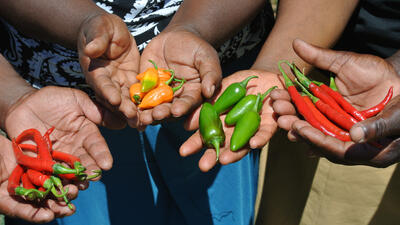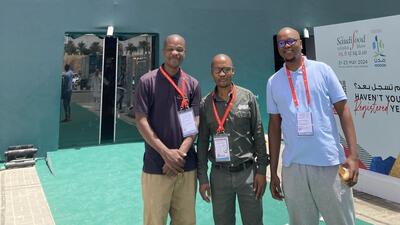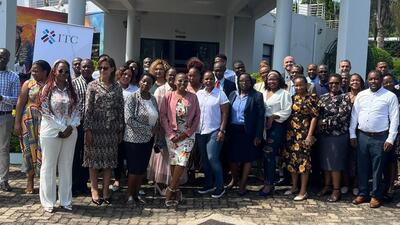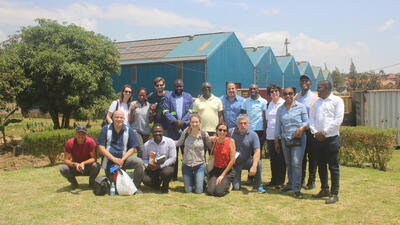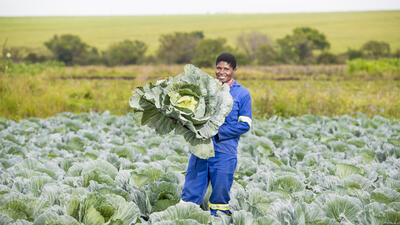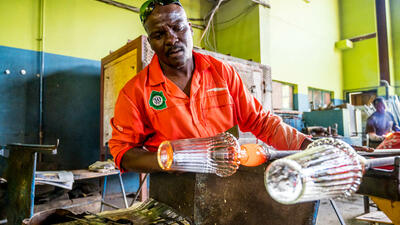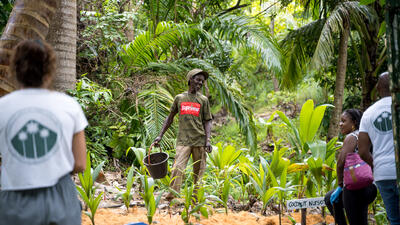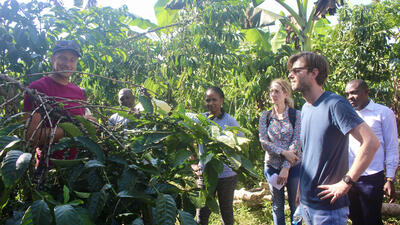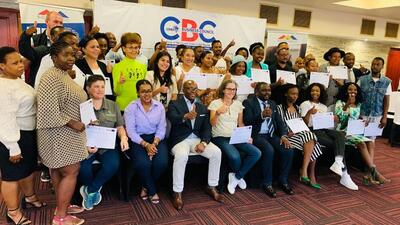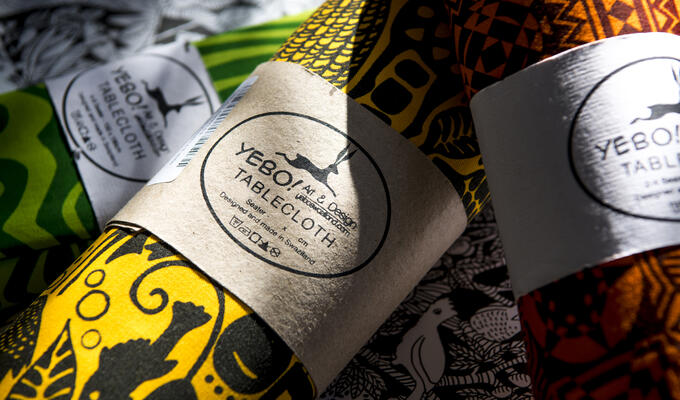
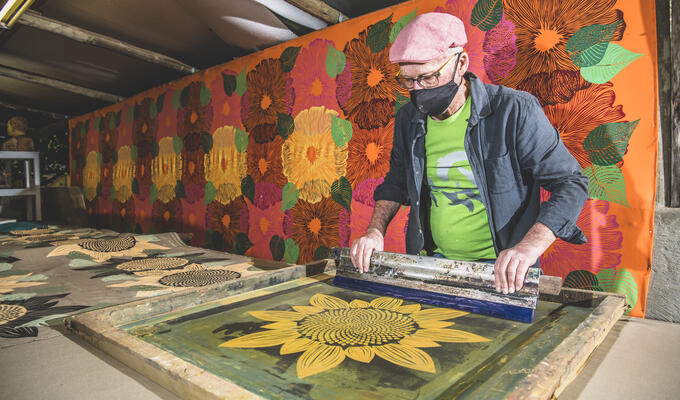
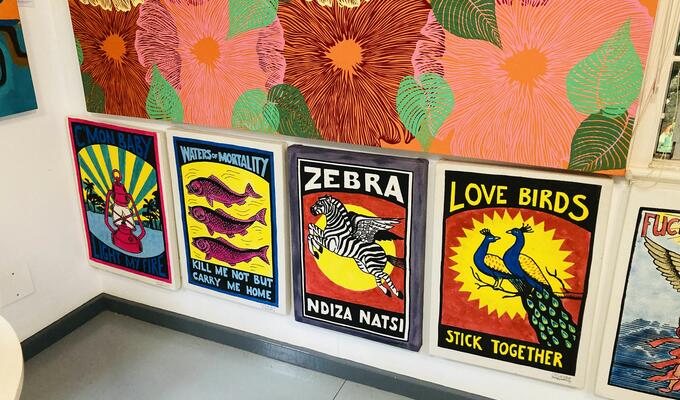
An alliance for Eswatini’s artisans
ITC, the European Union and Yebo Arts Gallery join forces to empower Eswatini’s handicraft sector for better market access and prices that last, affecting 40 women artisans
The International Trade Centre recognizes that partnerships can contribute to impactful projects and sustainable outcomes. To celebrate the teamwork behind the Partnerships4Purpose efforts, ITC is proud to highlight game-changing initiatives that are made possible through strong and meaningful collaboration.
Eswatini has a handicraft sector that is buzzing with entrepreneurs who are innovating with fresh designs and at the same time keeping local traditions and culture alive. While the potential and enthusiasm are there, these usually small enterprises often struggle to connect to markets and make a decent profit.
In June 2022, ITC, through its Alliances for Action initiative, and Eswatini’s Yebo Arts Gallery designed a comprehensive training workshop to address this gap. The plan is to boost the product development skills of 20 women artisans from Ka-Ndinda and Makhungutja craft producer groups. By leveraging community knowledge sharing, this could develop the skills and market linkages of at least 40 women in the sector.
For Yebo Director Aleta Armstrong, the community is important. She wants to enable women to become designers and run small but successful creative enterprises.
The unique approach: Alliances for Action
This training is one activity within the wider ITC partnership with the European Union’s (EU) Delegation to Eswatini under the EU-funded technical assistance project “Promoting Jobs and Growth through Competitive Alliances”, implemented with the Government of Eswatini.
The project aims to achieve sustainable and inclusive economic growth, create decent jobs, and improve the living standards of artisans and farmers in Eswatini.
The Jobs and growth is complemented and aligned with the EU-ITC partnership project that seeks to raise awareness and strengthen the capacity of the business community to take advantage of the opportunities under the SADC-EU Economic Partnership Agreement (SADC-EU EPA). This development-focused trade agreement grants asymmetric access to the EU Market for partners in the SADC-EU EPA group. They can shield sensitive products from full liberalization and deploy safeguards when imports from the EU are growing too quickly. The Agreement makes it easier for people and businesses from the two regions to invest in and trade with each other, and to spur development across Southern Africa.
Overall, the goal is to unlock key constraints to competitiveness for jobs and growth in Eswatini. To make this happen, ITC applies its Alliances for Action methodology on sustainable agribusiness – a market-system-based partnership approach for micro, small and medium-sized enterprises and value chain competitiveness.
This artisan capacity-building exercise seeks to explore the stories and strengths of each artisan and to show them how to channel creative thinking to design a new range of competitive products that reflect the soul of their brand, and of Eswatini.
The impact: Fresh designs to compete on the international market
The capacity development programme is underway: topics range from product development to textile design and screen-printing and will run until the end of October.
In just two weeks, one participating group has already rebranded themselves as Siyaphambili, a word that means ‘moving forward’. In that spirit, they designed a new logo and a new range of products they plan to launch soon. Indzaba Yami, another group in the training, is working on a fresh collection of woven wall-hanging art.
Alessia Bursi, the Head of Cooperation of the European Union Delegation to Eswatini, is impressed with the quality and aesthetics of the products produced and believes they will have a place on the European market.
Moving forward
The past 50 years or so have been tough for artisans in Eswatini. Their craft has not been a lucrative source of livelihood and earning a decent income has been a challenge.
The participating artisans are committed to changing that storyline and remain determined. In November 2022, the products designed and produced by the artisans will be showcased at Yebo Arts Gallery.
The partnership between the EU, ITC and the Government of Eswatini promotes an ecosystem of responsible enterprises, medium or small, and including women-led businesses. It will generate decent jobs, incomes, and sustainable linkages with suppliers while responding to demands from ethically conscious consumers.
The EU-ITC alliance provides a holistic, integrated support. Services range from technical capacity building to product compliance with EU standards (including environmental and social standards), to product upgrading for value addition, and innovation for enhanced enterprise competitiveness, governance and productivity.






